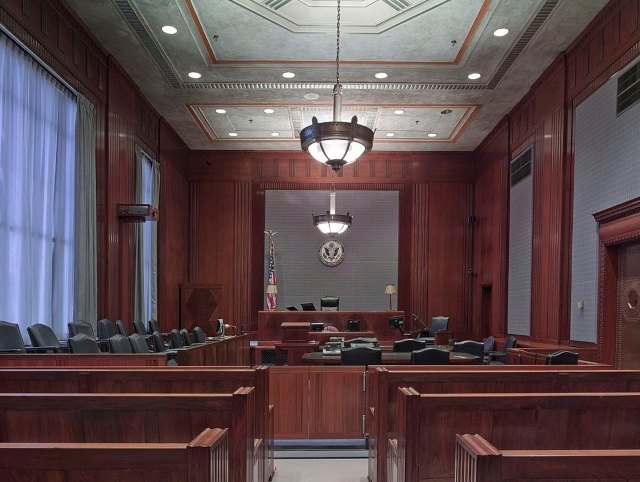The Ins And Outs of Filing a Habeas Corpus Application: A Guide for Looking For Post-Conviction Relief
Navigating the complexities of submitting a habeas corpus petition is a crucial step for people seeking post-conviction relief. By exploring the details of this essential legal tool, people can discover possible methods for difficult sentences and ultimately strive for fair end results.
Comprehending Habeas Corpus Petitions
When seeking to understand habeas corpus requests, it is important to comprehend the fundamental lawful principles underlying this effective lawful treatment (Lawyer). Habeas corpus, a Latin term significance "you will have the body," is a legal action that enables individuals to look for remedy for unlawful apprehension or jail time. This centuries-old writ acts as a protect versus approximate state action by giving a device for people to challenge the validity of their arrest
The foundation of a habeas corpus petition is the assertion that the petitioner's civil liberties have been gone against, leading to their unlawful apprehension. This can include cases of due procedure infractions, inadequate support of counsel, newly found proof, or perhaps administrative errors. Habeas corpus petitions commonly develop in the context of criminal proceedings, where individuals test the legality of their convictions or the conditions of their confinement.

Premises for Filing
There are a number of lawful grounds on which individuals may submit a habeas corpus application, each serving as a basis for challenging the lawfulness of their detention. These grounds generally consist of constitutional violations, ineffective support of guidance, newly found evidence, prosecutorial misbehavior, and jurisdictional issues.
Constitutional offenses create a common basis for submitting a habeas corpus petition, encompassing claims such as violations of the right to a reasonable trial, due process, or protection versus cruel and uncommon punishment. Inefficient assistance of counsel insurance claims emerge when an accused's lawful depiction during the test or charm was so lacking that it threatens self-confidence in the end result. Recently uncovered evidence, if proven to be material and most likely to alter the result of the case, can additionally require habeas alleviation. Prosecutorial misconduct includes underhanded or illegal conduct by the prosecution that bias the offender's rights. Lastly, administrative issues may occur when the court that convicted the private did not have the authority to do so, providing a basis for testing the detention via a habeas corpus petition.
Procedural Requirements
Recognizing the procedural requirements for submitting a habeas corpus petition is essential for ensuring that the lawful procedure is adhered to properly and properly. Failure to exhaust state treatments can result in the federal court disregarding the petition.
Furthermore, there are strict time frame for submitting a habeas corpus request. The Antiterrorism and Effective Execution Act (AEDPA) imposes a 1 year law of limitations, beginning with the date on which the sentence ended up being final. Nonetheless, this target date can be based on specific exemptions based upon particular scenarios.
Moreover, procedural needs mandate that a habeas corpus request should include all pertinent cases and sustaining proof. Incomplete or not enough applications might be rejected or postponed, emphasizing the value of detailed prep work and adherence to my link procedural regulations in seeking post-conviction relief via habeas corpus.
Challenging Convictions
Just how can individuals successfully test convictions with the procedure of submitting a habeas corpus application? Challenging convictions via a habeas corpus petition entails offering lawful debates that demonstrate an infraction of humans rights, step-by-step errors, or brand-new proof that was not readily available during the initial test. To succeed in challenging a conviction, petitioners must show that there was an essential issue in the criminal process that resulted in a wrongful conviction or an unjustified sentence. This might consist of inefficient aid of advice, prosecutorial transgression, newly uncovered evidence of innocence, or violations of the petitioner's civil liberties. Lawyer.
When submitting a habeas corpus request to challenge a conviction, it is crucial to comply with strict step-by-step demands, existing compelling lawful debates sustained by evidence, and articulate just how the supposed errors influenced the fairness of the test. idhao federal habeas corpus attorneys. Looking for the help of experienced attorneys or organizations concentrating on post-conviction alleviation can substantially boost the opportunities of a successful result when testing sentences through a habeas corpus request

Protecting Fair Outcomes
To attain fair results in challenging convictions via the declaring of a habeas corpus application, individuals must thoroughly assess the lawful basis for their insurance claims and present engaging evidence sustaining their assertions. Securing fair results in post-conviction alleviation process calls for an extensive understanding of the lawful system, interest to detail, and calculated planning. It is necessary to have a clear strategy in position, describing the certain grounds for the request and just how the provided evidence aligns with legal disagreements.
Furthermore, individuals seeking post-conviction alleviation must follow all procedural demands and target dates to ensure their request is taken into consideration by the court. Failing to fulfill these requirements could result in the termination of the petition without the merits being examined. Additionally, involving the services of knowledgeable legal specialists, such as lawyers concentrating on habeas corpus requests, can dramatically boost the opportunities of protecting fair results.
Verdict
In final thought, the details of filing a habeas corpus request for seeking post-conviction alleviation include understanding the grounds for filing, meeting procedural demands, testing sentences, and securing reasonable end results (habeas corpus petition). It is essential to meticulously navigate the legal procedure to make sure the best chance of success in seeking alleviation via this opportunity. Comprehending the intricacies of habeas corpus applications is crucial for people looking for to test their sentences and acquire justice